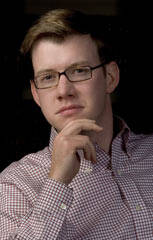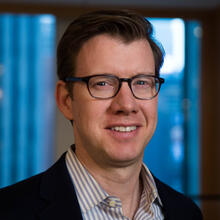I owe a debt of gratitude to the Catholic Common Ground Initiative and to its late co-founder, Msgr. Philip J. Murnion. As a senior at Princeton University, I chose C.C.G.I. as the subject of my thesis, and Murnion graciously invited me to the initiative’s headquarters in lower Manhattan to discuss the project. Later, when I expressed an interest in Catholic journalism, Monsignor Murnion put me in touch with Peggy Steinfels at Commonweal, and from there my career took shape.
Looking back, I can see why I felt an affinity for C.C.G.I. The initiative was launched by Cardinal Joseph Bernardin in 1996 to bring healing to a polarized church. As an undergraduate, I worshipped on a campus where Opus Dei and the Diocese of Trenton sponsored separate ministries. In our Catholic community there was a notable division between the “pro-life” and “social justice” camps. Perhaps I hoped that by studying C.C.G.I., I could in some way understand the rift that was developing in my own corner of the church.
The spirit of the initiative is also in keeping with my personality. I do not, as my friends will tell you, seek out conflict, and I prefer respectful conversation to heated debate. (Working at a journal of opinion, this has not always worked in my favor.) I may at times disagree strongly with my colleagues, but ultimately we find ways to work together.
Nearly 15 years have passed since I wrote my history of C.C.G.I. In that time both Cardinal Bernardin and Monsignor Murnion have died; the National Pastoral Life Center, the onetime home to C.C.G.I., has been disbanded; and the initiative is now based at the Catholic Theological Union in Chicago. Yet through a variety of programs, it remains committed to fostering prayerful dialogue on critical issues facing the church.
C.C.G.I. has been dismissed in some quarters as a liberal maneuver to use dialogue to bring about changes in church teaching. This characterization is deeply unfair. Having attended a few of the initiative’s meetings, I can attest to the good faith of the individuals involved. The initiative is chaired by Archbishop Daniel E. Pilarczyk, a highly respected member of the episcopate. Doris Gottemoeller, R.S.M., Lisa Sowle Cahill and Paul Griffiths are among the many respected scholars who have taken part in its work.
That work remains as important as ever. One of the key achievements of C.C.G.I. is a set of principles for talking about divisive subjects in a respectful manner. Who can disagree that we need such guidance now? The division that the initiative’s founders wrote about in “Called to Be Catholic“ (1996) has worsened—distorted and amplified by the rise of the Internet. A movement that takes as its founding principle “the call to be one in Christ” faces a Catholic blogosphere where innuendo and anonymous criticism tear at our common bonds.
I know of what I speak. One of my tasks at America is to moderate our blog In All Things, where we have attracted a passel of respondents who consider it their duty to defend the truth of the faith. This is a worthy goal, but too often their comments are uncharitable, even mean-spirited. I believe strongly in the initiative’s healing mission, but I am afraid that on our blog, at least, I have yet to cultivate a space that prizes Christian unity.
In 1996 C.C.G.I.’s founders worried that if the polarization they identified was not addressed, the church would be “torn by dissension and weakened in its core structures.” Though they did not foresee the role the Internet would play in that unraveling, their understanding of the troubles sown by division remains prophetic. Maybe now they will receive a fair hearing.









Thank you for your update on the Catholic Common Ground Initiative. A number of years ago at Saint John's University, I heard a wonderful presentation on CCGI by Bishop Ed O'Donnell. Ever since, one of my daily prayer intentions has been that, within in the Church, the spirit of CCGI be kept alive and nurtured. I pray that the goals of Cardinal Bernadine and Monsignor Murnion for CCGI be achieved.
The Catholic Church has been truly blessed in having been served by dedicated men like Cardinal Bernadine, Bishop O'Donnell, and Monsignor Murnion.
I would like to read more about the ongoing efforts of the CCGI in the pages of America magazine.
We need a renewal of Cardinal Bernardin's vision. However, without the power to move the conversation forward our Church will continue to unravel. Nevertheless, we must perservere in our efforts to help the Church to seek the truth, eliminate divisive disagreement and act with courage to solidity the Body of Christ.
What is the criteria for "highly respected" It also implies that some are "lowly respected" Can you identify them?
You are correct that many blogs in liberal magazines can be divisive and vitriolic. However, there is much truth to the intrasigence of the Vatican, especially when they close debate on sexual ethical issues that divide our Church. This has much to do with the moral philosophy of the Vatican, classicism, versus the moral philosophy of most theologians, historicism.
For classicists, the world is a finished product and truth has already been revealed, expressed, taught and known. The truth is universal and unchanging. Historicits believe that history has taught us that our understanding of truth is progressive in time and space. Many Doctrines of the Church that were once proclaimed by popes and taught by bishops for centuries as truth, were eventually reformed.
The Vatican will not go against past papal encyclicals no matter the reason, in the two previous and current papacy. Hence, the bitter exchange. It does not make bitter exchanges right, but neither is closing the debate.